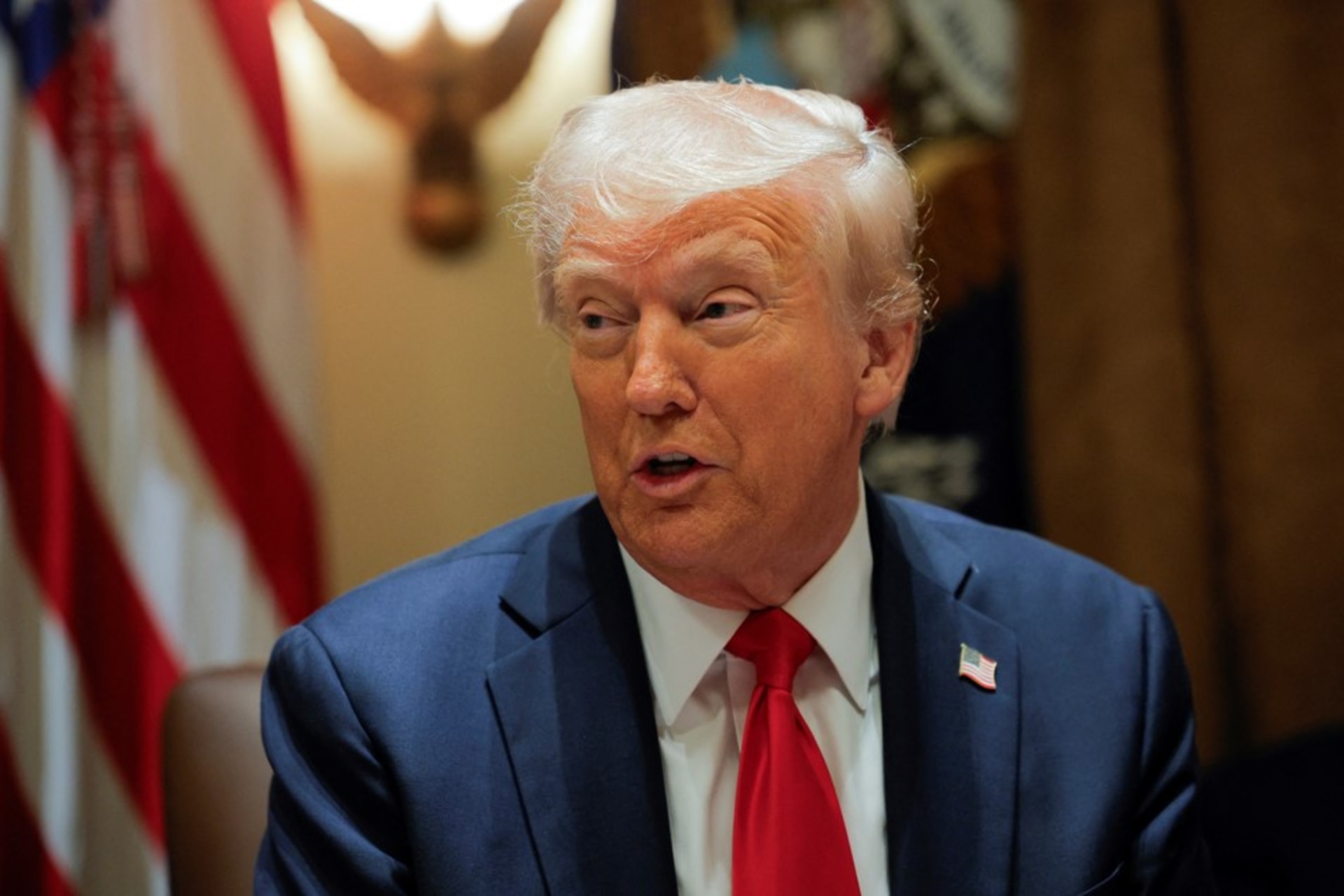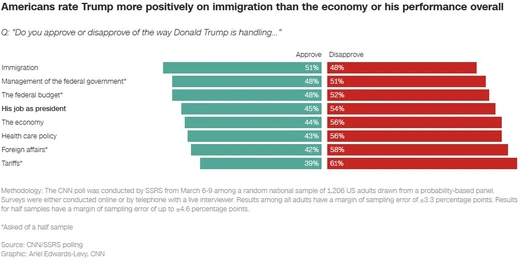Donald Trump’s Slumping Poll Numbers
The American public dislikes the president’s efforts to remake the U.S. economy and foreign policy, but they are unlikely to constrain him.

By experts and staff
- Published
Experts
![]() By James M. LindsayMary and David Boies Distinguished Senior Fellow in U.S. Foreign Policy
By James M. LindsayMary and David Boies Distinguished Senior Fellow in U.S. Foreign Policy
President Donald Trump passed the fifty-day mark in his second presidency this week. Several polling organizations marked the occasion by releasing polls assessing his performance. Although their results differ in the details, they convey a similar message. Most Americans disapprove of much of what he is doing, particularly on foreign policy.
Coverage of poll results typically starts with a president’s overall approval rating and whether it is net positive or net negative. Here, three recent polls are split. An Emerson College poll found Trump with a 47 percent approval rating and a 45 percent disapproval rating. A CNN poll has him with 45 percent approval and 54 percent disapproval. A Quinnipiac poll has him with 42 percent approval and 53 percent disapproval.
When it comes to specific issues, many Americans are displeased with what Trump is doing. Emerson College found that Trump’s approval rating outpaced his disapproval rating on only two of the nine major issues they tracked—immigration policy and balancing the federal budget.

Given that Trump won the 2024 election largely on his promise to “fix” the economy, it is remarkable that eight weeks into his presidency public disapproval of his handling of the economy outpaces approval by eleven percentage points. Trump is also upside down on the four foreign policy issues that Emerson College polled.
The CNN poll tells the same story. A majority of voters approve of his handling of immigration. After that, Americans do not like what they are seeing.

CNN has Trump upside down by sixteen points on foreign affairs and by twenty-two points on tariffs.
The Quinnipiac poll makes it three for three on public disapproval of large parts of Trump’s agenda.
These findings are in a way unsurprising. The public largely disliked Trump’s relatively more modest efforts to remake U.S. foreign policy during his first presidency. That was one of the reasons his overall approval ratings sank as his term progressed.
The Emerson, CNN, and Quinnipiac polls also provide additional evidence that Americans are not turning their back on the world, even if they voted for a president who champions America First. Disappointment over Joe Biden’s handling of the Afghanistan withdrawal and concerns about an unending war in Ukraine do not equal a call for America to come home or a desire to turn on friends, partners, and allies.
That said, current polling trends do not mean that public opinion will soon force Trump to reverse course. To begin with, he may be willing to pay a high political price to remake U.S. domestic and foreign policy. The policies he is enacting reflect his core beliefs, he believes they will eventually provide a big payoff, and he is comfortable acting boldly and daring others to stop him. Considering is he not eligible to run for reelection, he may just shrug his shoulders at dismal poll numbers.
Beyond that, it is far from certain that Trump will pay a high political price for his decisions. Polls show what the public’s preferences are, not how intensely they hold them. Americans may dislike Trump’s solicitous approach to Russia but never act on their disagreement. In politics, as in much of life, acquiescence is consent.
Conversely, the Emerson, CNN, and Quinnipiac polls show that Republicans remain overwhelmingly supportive of Trump. Likewise, some of the Americans who applaud Trump’s moves on tariffs or dealing with Hamas may hold those beliefs passionately and will continue to cheer him on. Presidents, as a rule, pay less attention to the views of the average voter than to the views of their core constituencies. As long as Trump’s MAGA base remains in his corner, he will continue to enjoy considerable freedom of action.
Oscar Berry assisted in the preparation of this post.
